Ekocab Says It Is Not Affiliated To Lagos Gov’t But People Who Think It Is Are Trying To ‘Kill’ The New e-Hailing Service
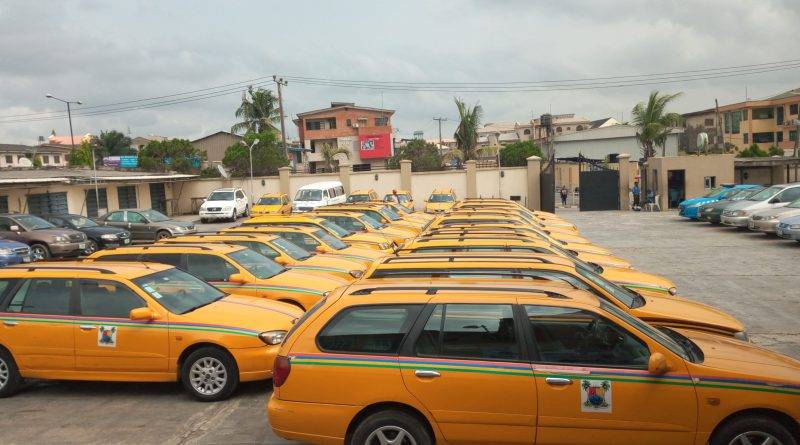
Because of its apparent connections to the Lagos State Government (LASG), Ekocab — the ride-hailing service for yellow taxi operators which launched only yesterday, March 10 — may be dead-on-arrival.
And that’s because scores of Lagosians and Nigerians in general — who think the new platform is a cronyism-inspired contrivance that was only birthed in the aftermath of what looks like a deliberate clampdown on Uber and Bolt — have taken it upon themselves to get the Android app kicked out of Play Store.
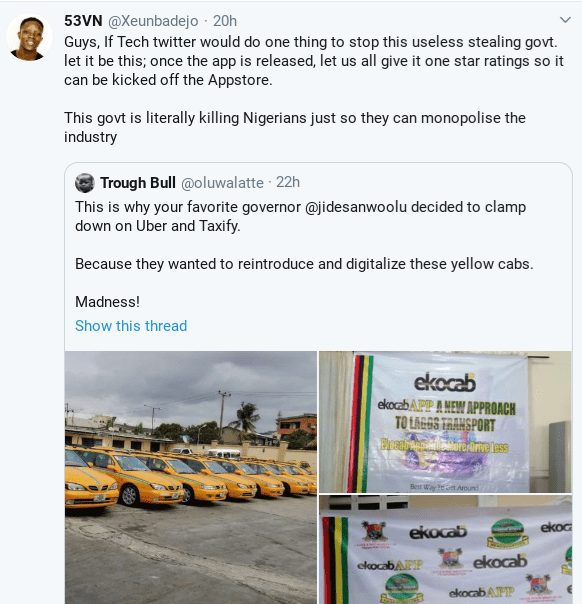
Despite only officially launching less than 24 hours ago, the Ekocab app already has what is perhaps the worst reviews on Play Store, complete with a one-star rating, and there are even many of the more-unflattering reviews that say the app doesn’t deserve any “star” at all, or maybe a “negative star rating” if possible.
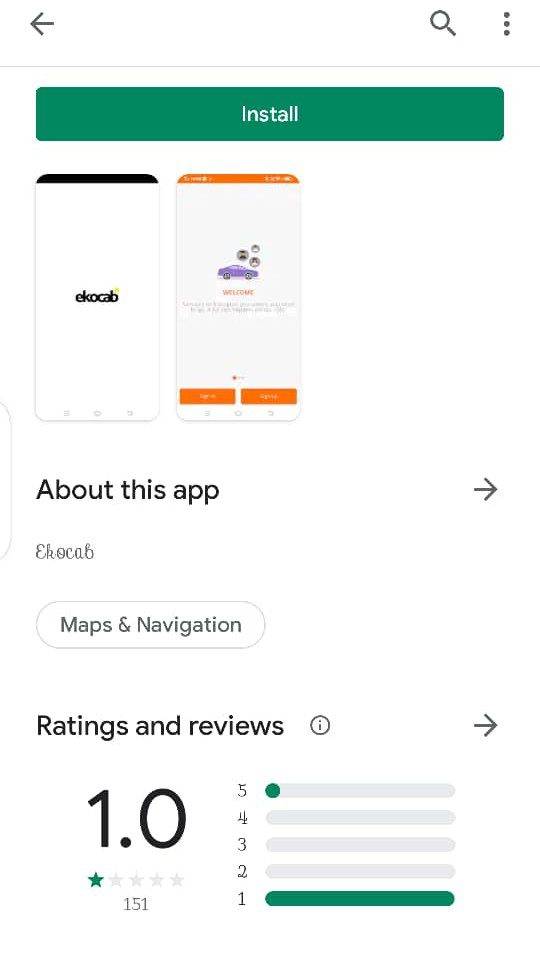
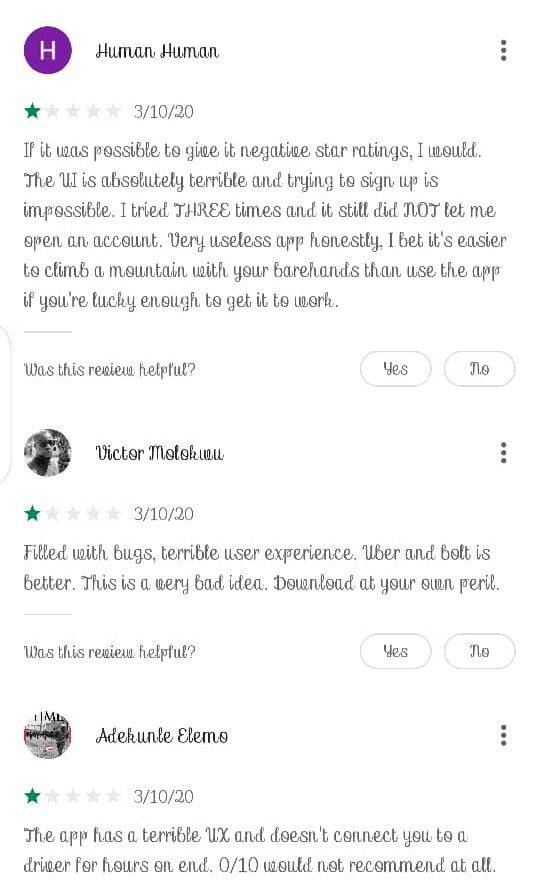
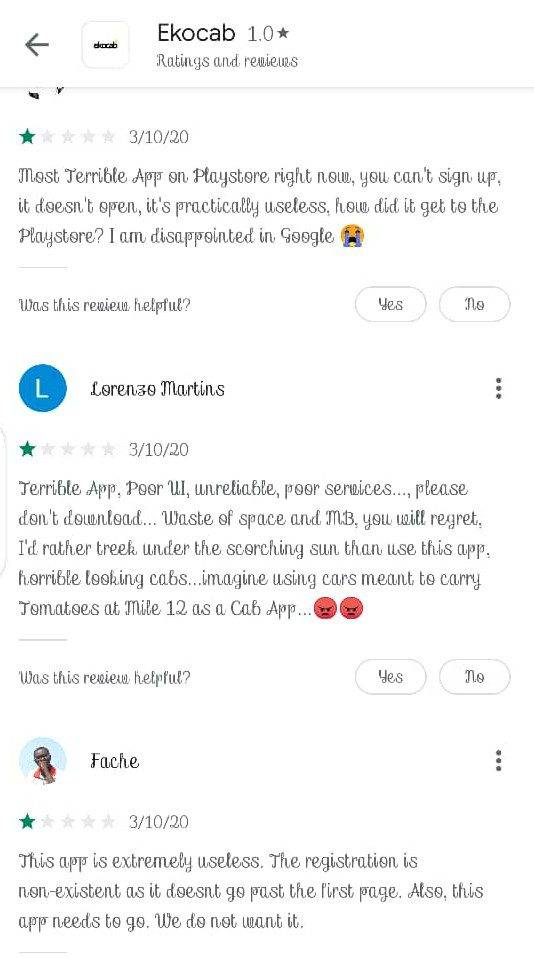
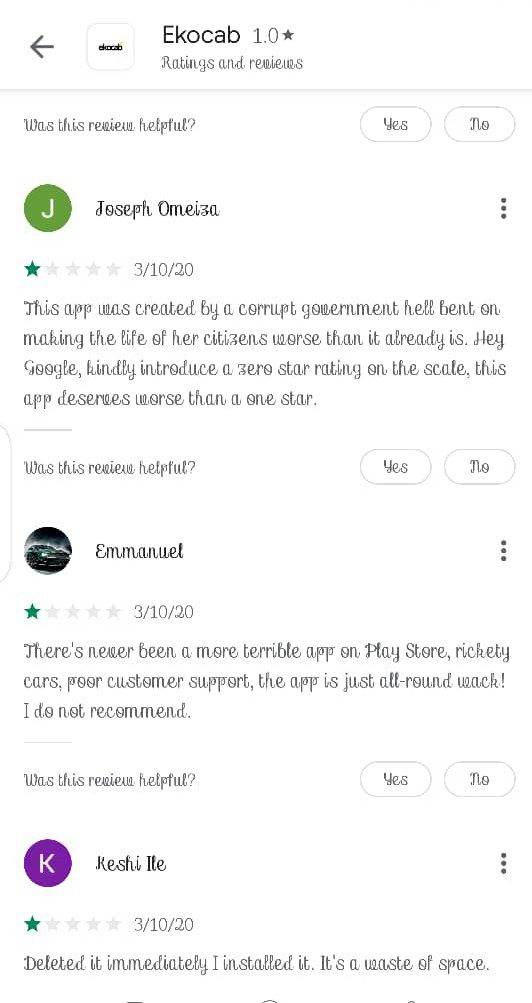
The animosity towards the new Ekocab service feeds off the idea that the platform is government-owned. And if anything, the branding does suggest that to most people.
The cabs on the platform are yellow taxis bearing the LASG emblem and there are many who are convinced that the platform, if not completely owned by someone in the upper echelons of government, is certainly controlled by powerful individuals who are “friends with the government.”
However, it is important to note at this juncture that Jubril A. Gawat, the Senior Special Assistant to the Lagos State Governor on New Media, denied such claims in a series of tweets in which he explained that Ekocab is not government property but the culmination of the efforts of yellow cab operators at rebranding and that the LASG emblem has always been emblazoned on the yellow taxis.
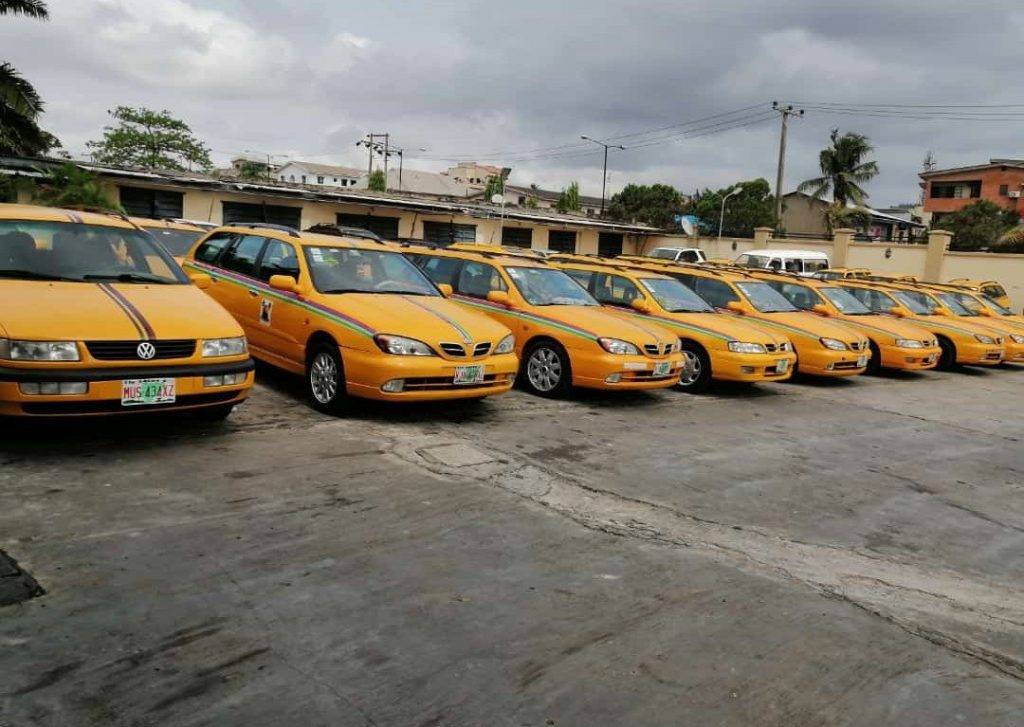
We reached out to Ekocab to learn more about their connections to the LASG and this is what they told WeeTracker:
“Contrary to the misinformation online, Ekocab is not affiliated to the Lagos State Government. Lagos State is a regulator showing support for players that are working towards the fostering of transport innovation. For example, When UberBoat launched, we had the Governor attend the event,” reads a part of the statement.
“Ekocab isn’t limited to the yellow taxi, [we are] also open to unbranded cars. For now, our drivers are mostly from the yellow taxi association, the ones that have been trained and reorientated. We have trained 100 drivers, the ones that are technically-savvy and we plan to train another 500.”
Ekocab stated further,
“[We are here] to give local taxis a fighting chance and help them achieve a competitive advantage.”
Scouring the internet for information on Ekocab, it appears the platform was built by a company called NODE Nigeria which oddly doesn’t have a working website even as it describes itself as a “world leader in communications technology services and the driving force behind the networked society.”
The two co-founders, Nathaniel Gideon and Segun Cole, have previous work experience founding a tech company that consults for State Governments.
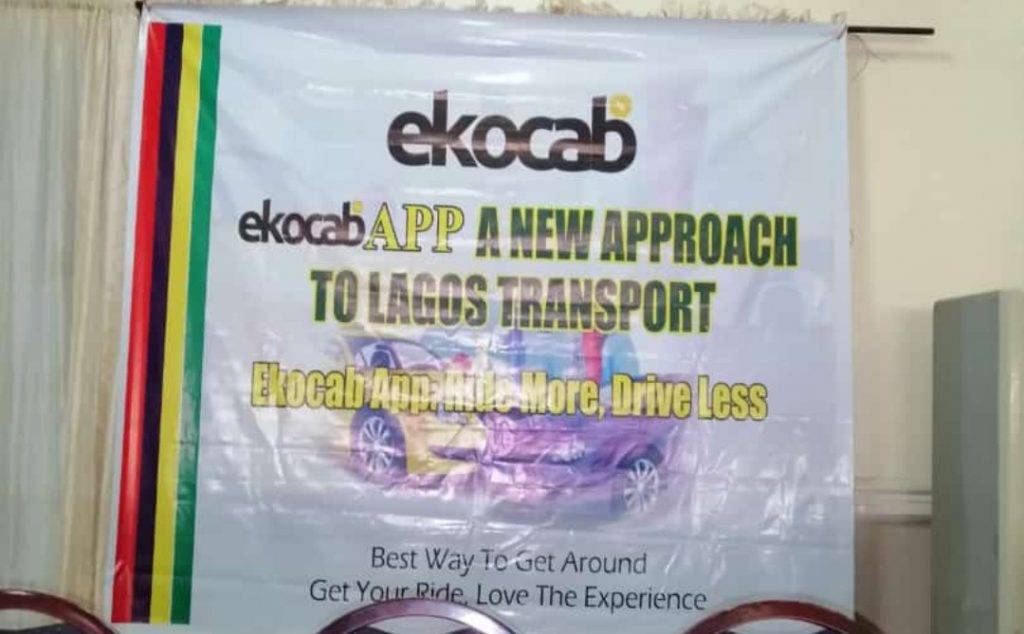
In its description, Ekocab actually does claim to be launching “in collaboration with the Lagos State Government” having completed successful pilot testing over the last year despite the fact that Google Play doesn’t show the number of downloads for the app.
Plus the timing of the launch is somewhat suspect as it is coming at a time when drivers on ride-hailing platforms like Uber and Bolt, which operate in Lagos, are being hassled for myriad steep fees and permits.
A fortnight ago, we reported that discussions between the LASG and ride-hailing operators are ongoing on the subject of a new licensing regime.
A source told The Guardian that the new regulations will mandate third-party operators like Uber and Bolt to pay NGN 10 Mn and an annual renewal fee of NGN 5 Mn if they have less than 1,000 drivers. Under the new regulation, the state government will also earn 10 percent on the fee for each trip.
Before that, in the weeks that followed the “Okada ban”, reports emerged that Uber and Bolt drivers in Lagos were getting hassled by officials of the Vehicle Inspection Services (VIS).
According to the reports, the officers were impounding vehicles that failed to provide hackney permits and Lagos State Drivers Institute (LASDRI) license, and compelling “errant” drivers to pay as much as NGN 60 K into government coffers before their vehicles are released.
On their part, the authorities denied any deliberate clampdown on Uber and Bolt, maintaining that their demands are standard requirements that have always been in effect and was not exclusively targeted at e-hailing operators.
In any case, there are many who believe that the LASG has an agenda to eventually kick out private-owned e-hailing players or make it almost impossible for them to operate, and then replace them with government-backed players.
To those who subscribe to this line of thought, the Okada ban, which sucked the life out of bike-hailing companies in Lagos, is the first play and cab-operators players will eventually be pushed out too.
And all these e-hailing players will eventually be replaced by government-backed e-hailing platforms, not unlike Ekocab which, despite claiming no affiliation to the government, is an easy target for the anger of the people, so to speak.